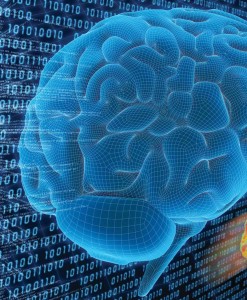 The 1990s were proclaimed the “Decade of the Brain” by President George W. Bush – an action that bolstered neuroscience research and continues to spur discoveries about one of the most important human organs.
The 1990s were proclaimed the “Decade of the Brain” by President George W. Bush – an action that bolstered neuroscience research and continues to spur discoveries about one of the most important human organs.
Neuroscience researchers have made strides in a myriad of realms – personality, economics, human develop and medicine, to name a few. Of course, these discoveries have been reported and discussed across news channels and the Internet, including here on EBL. (We’ve written about the impact on video games on the brain and the benefits of meditation, to name a few.)
Now a new study in the journal Neuron calls into question how well the media have explained neuroscience research. The study reviewed articles publishes in six major British newspapers from 2000 to 2010. The study found three ways that the brain is commonly portrayed in the media.
The first is the idea of brain as a resource that needs to be protected an optimized through, for example, doing crossword puzzles or avoiding television. This concept makes it seems like “exercising” the brain is as simple a strengthening a muscle, which is an inaccurate simplification.
The second is the idea of the brain as a way to quantify the difference between people – the idea that gender, sexual orientation and conditions like substance abuse and obesity show up in our brains. While differences in our personalities and behaviors certainly do show up in our brains, it doesn’t mean that women, or gay people or alcoholics are the same.
The third idea is that the brain provides biological proof of our experiences. While it’s true that our experiences do show up in our brains, the review found that media stories often overextend brain research. For example, a study showing that informational overload can crowd out empathy was presented as evidence that social networking websites like Twitter rob people of compassion, even though there’s no proof that the evidence extends that far.
“You can do without a lot of your body parts – but without your brain, you just aren’t you,” said Barbara Ganzel, a researcher at Cornell’s College of Human Ecology who studies the impact of trauma on the brain. “The mystery of the connection between your brain and ‘you’ is exciting and scary and complicated. While we’re beginning to better understand the connection, there is a long road ahead before we will fully comprehend the answers to many of these questions.”
The take-home message: While we’re making great strides in neuroscience research, the media often extends the actual evidence in ways that may not be completely accurate. The brain is the most complex organ in the human body, and one we’re not likely to understand fully for a very long time.



Speak Your Mind